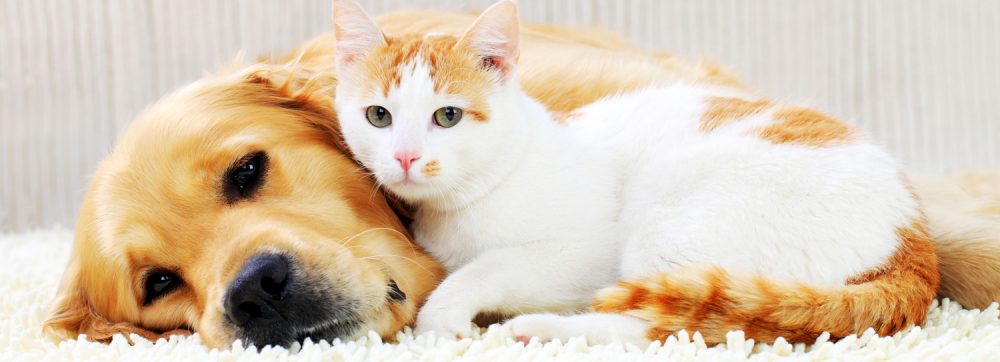
Eventually, every cat owner will have a feline friend decide that the litter box is actually not the best place to do business. All too often, a cat will decide that it’s actually far better to use a discreet corner in your house, or perhaps your favorite shoe, or even the bathroom sink. It might seem like this is a random and meaningless change in behavior; but generally, you’ll probably be able to figure out the cause and get your cat back on track in no time.
Why is my cat not using his or her box?
Here’s the big question: why do cats, who usually like to be neat and clean about their elimination habits, decide to change?
First things first: make sure it’s not medical. There are a number of medical issues that can cause your otherwise well-mannered kitty to boycott his litter box. The first thing you should do, particularly if this bad behavior is unusual for your cat, is see your veterinarian. He or she will likely want to run some simple tests (urine, blood) to ensure that there is nothing wrong with your cat’s kidneys, bladder, or digestive system.
Marking and Spraying
A common cause is the instinct to spray or mark, and this is most common among non-neutered males, though it is also something that can happen in females and neutered males. Cats usually mark to lay claim to their territory– especially if there is a female in heat in the area — or as a reaction to stress.
In the case of marking, if your cat isn’t neutered, get him neutered. It will often quickly stop inappropriate urination, but also it leads to a healthier and longer-lived cat. Neutered males can’t develop certain kinds of cancer, are less likely to stray, and are often just calmer and easy to live with.
If your cat is neutered or spayed and marking anyway, look around and see if there might be something causing your cat to feel stressed or uncomfortable:
- New furniture or other large objects introduced into their environment
- Cats coming into your yard or “visiting” your cat at windows in your house
- Frequent or long-term guests or visitors in your house (human or otherwise)
You can use non-toxic anti-cat sprays to discourage marking or even use essential oils like peppermint, citrus, and eucalyptus to repel your cat and discourage marking in a particular area.
There are also some man-made and synthetic sprays and pheromones you can spray in areas your cat is eliminating that will help reduce stress. You veterinarian can recommend products of this nature.
Random Inappropriate Urination and Defecation
Cats will choose to stop using a litter box for a variety of other reasons, some obvious and some not. Some of the most common causes include:
- Dirty litter boxes – Cats hate a dirty bathroom as much as we do. You should scoop the box every day, at least once a day, removing any solid waste. If you use clumping litter, remove those clumps of urine every day, as well. Change the box as often as required to keep it clean and to ensure that cat litter can do its job of absorbing moisture and bad odors.
- Litter box over-crowding – Cats don’t like to share their boxes with too many other cats. Ideally, each cat in your house should have his own litter box. While they may not exclusively use their personal litter box, it’s a good rule to follow to ensure that every cat feels like he has ample space to do business.
- Bad litter box feng shui – Yes, believe it or not, cats do care about where their litter boxes are located. Because the act of using the litter box leaves a cat temporarily vulnerable, they don’t like to feel as though they can be cornered or snuck up on when their relieving themselves. Also, cats like a little privacy, so having their box in the middle of a busy place in your house isn’t a good idea.
- Litter type – Cats can be picky about what kind of litter they like. They might think one kind is too rough on their feet or not like the smell of another. Experiment with different types of litter if you think that might be the problem. When a particular kind of litter works, don’t switch! If you have to switch, do it gradually. Cats are generally wary of anything new and might boycott the box just because of that.

Cleaning Up Messes
Cats have incredibly strong powers of smell (not as strong as a dog, but many times more powerful than humans). Normal household cleaners will not remove the smell or urine or feces. You will need to use special enzymatic cleaners to get the (awful) odor out of carpet, upholstery, wood floors, and anything else that your cat’s waste might touch. The odor from the urine of an non-neutered male is particularly difficult to get out of many materials (another reason to get your kitty neutered!). Your veterinarian can recommend the best product for you.
Stay Calm and Patient and Show Lots of Love.
While it’s easy to let a problem like this get you really frustrated with your kitty, don’t let it get to you. If you get stressed or angry, it will cause your cat to feel the same way. Cats don’t do this to be bad, they just react to something that makes them break rules that they are normally happy to follow.
And remember, your veterinarian is always your best partner in helping with your pet’s behavior issues.

